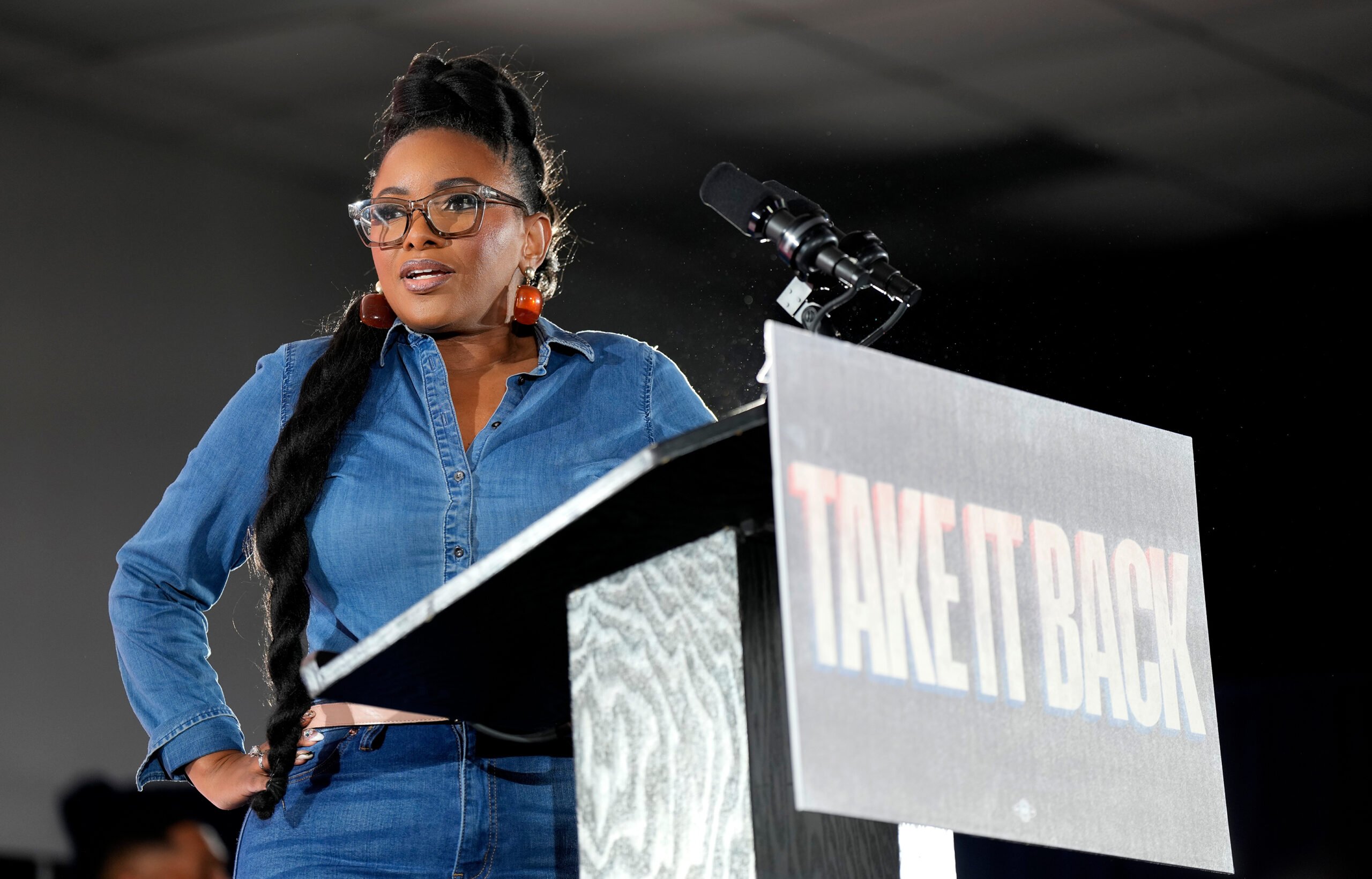
People often have difficulty expressing themselves clearly, confidently and compassionately, whether in personal relationships, the workplace or social settings. Fear of making mistakes, appearing foolish or facing criticism can hinder communication. With the rise of digital communication, these challenges have only multiplied, making developing strong communication skills more crucial than ever.
Many books offer practical advice, strategies and insights for overcoming these challenges and learning how to talk to anyone. In addition to improving public speaking skills, managing difficult conversations and connecting with those around you, the following best books on communication skills can serve as valuable resources for effective communication.
These 12 books have been carefully selected to provide you with a comprehensive toolkit for mastering communication in various aspects of life. Each book offers unique insights that can inspire change and foster personal growth.
1. Talk Like TED
By Carmine Gallo
Talk Like TED addresses the common fear of public speaking and the challenge of giving impactful presentations. Carmine Gallo examines some of the most successful TED Talks to uncover nine secrets that make these presentations engaging and memorable. These insights go beyond typical public speaking tips, delving into the art of storytelling and connecting emotionally with the audience.
If you want to improve your public speaking skills, Talk Like TED is available in hardcover, audio and Kindle formats, making it accessible in whichever way best suits your learning style.
2. Dare to Lead
By Brené Brown
Brené Brown’s Dare to Lead explores the essential traits of effective leadership, focusing on vulnerability, empathy and courage. Based on extensive research with leaders and decision-makers, Brown emphasizes the importance of investing in these human qualities, especially as technology advances. As she notes:
“The irony is that we’re choosing not to invest in developing the hearts and minds of leaders at the exact same time as we’re scrambling to figure out what we have to offer that machines and AI can’t do better and faster. What can we do better? Empathy, connection, and courage, to start.”
Her research-based insights provide practical strategies for leaders looking to foster team trust and connection. If you’re interested in developing your leadership and communication skills, consider getting Dare to Lead on Amazon.
Related Articles: 10 Communication Secrets of Great Leaders, 13 Communication Mistakes Leaders Make
3. Think Faster, Talk Smarter
By Matt Abrahams
Spontaneous communication in meetings, interviews or casual conversations can be intimidating. Think Faster, Talk Smarter offers strategies to help you communicate effectively on the fly. This book focuses on developing mental agility to respond confidently and quickly to challenges.
Author Matt Abrahams offers tips on staying calm under pressure, expressing yourself clearly and organizing your thoughts. This book is for anyone seeking to improve their ability to think independently in professional and social settings.
Whether preparing for an interview, giving a public speech or simply improving your everyday conversations, Think Faster, Talk Smarter provides practical tools to help you improve your communication.
4. Surrounded by Idiots
By Thomas Erikson
Understanding behavior types is critical to effective communication. In Surrounded by Idiots, people are categorized into four types: Reds, Yellows, Greens and Blues, each with distinct communication styles. This book guides you in recognizing these types and adapting your approach accordingly.
Erikson’s insights are helpful in both personal and professional settings. By understanding others’ behavior types, you can tailor your communication to reduce misunderstandings and improve relationships.
For example, the Reds are decisive, while the Blues are analytical. Recognizing these traits helps you communicate more effectively, making interactions smoother and more productive. Surrounded by Idiots is available in hardcover, audio and Kindle formats, offering flexible access.
5. How to Win Friends & Influence People
By Dale Carnegie
How to Win Friends & Influence People is a cornerstone of communication skills. Originally published in 1936, its timeless principles highlight how to make people like you understand your way of thinking and influence them.
Carnegie’s advice is simple but powerful: smile, show genuine interest and remember names. Developing interpersonal communication skills remains essential.
This book covers six ways to make people like you, twelve ways to persuade others and nine ways to influence without resentment. Using these leadership insights, you can develop in your professional career and make your personal life easier.
How to Win Friends & Influence People is available in hardcover, audio and Kindle formats.
6. Crucial Conversations
By Joseph Grenny, Ron McMillan, Al Switzler and Kerry Patterson
Crucial Conversations guides you through high-stakes discussions where opinions differ, emotions run high and outcomes are crucial. Despite disagreement, the authors offer strategies for staying calm, cultivating open dialogue and achieving mutual respect.
The book also teaches how to respond when someone initiates a crucial conversation with you, emphasizing the importance of listening first and keeping emotions in check. Additionally, it helps readers identify and address the lag time between recognizing a problem and actually discussing it, encouraging timely and constructive dialogue.
The third edition also covers communication across digital platforms, an increasingly important skill in today’s landscape. Crucial Conversations is a highly recommended read if you’re looking to master difficult conversations or develop communication skills for more effective leadership.
7. Verbal Judo
By George J. Thompson
In Verbal Judo, George J. Thompson introduces a communication approach focused on empathy, listening and strategic speaking. The book teaches how to use words to defuse conflict, build rapport and effectively persuade others.
Thompson’s method involves redirecting aggression into calm, productive dialogue, making it particularly useful for handling confrontations and difficult conversations. Drawing from his experience as a police officer, Thompson provides techniques to help you navigate challenging interactions with confidence and control.
Verbal Judo is a valuable guide for anyone looking to improve their conflict resolution skills.
8. Nonviolent Communication
By Marshall B. Rosenberg, PhD
Nonviolent Communication is a guide to empathetic and compassionate communication. Marshall B. Rosenberg introduces a four-step process—observations, feelings, needs and requests—to help you express yourself honestly while understanding others’ perspectives.
The book teaches how to replace communication blocks like criticism or blame with understanding, empathy and mutual respect, making it especially effective for resolving conflicts and fostering more profound connections. More than just a technique, Nonviolent Communication is a philosophy that promotes peace and understanding in all interactions, making it essential for anyone looking to improve their relationships.
9. Made to Stick
By Chip Heath & Dan Heath
Why do some ideas stick while others fade away? Chip Heath and Dan Heath’s Made to Stick explores how to make your ideas more memorable and impactful. Successful ideas are simple, unexpected, concrete, credible, emotional and story-backed.
While Made to Stick focuses on communication, it’s really about getting your ideas heard. Whether you’re crafting a presentation, writing a blog or leading a team, the lessons from this book will help you communicate more effectively.
For anyone looking to make their message resonate, Made to Stick is an essential guide to crafting compelling and persuasive communication.
10. Getting to Yes
By Roger Fisher & William Ury
Negotiation is a critical communication skill, and Getting to Yes by Roger Fisher and William Ury is one of the most respected books on the subject. The book introduces “principled negotiation,” a method focused on reaching mutually acceptable agreements rather than engaging in adversarial haggling.
Key principles include:
- Separating people from the problem: Address issues without personal attacks to keep negotiations respectful.
- Focusing on interests, not positions: Understand the underlying interests driving demands rather than rigidly sticking to positions.
- Inventing options for mutual gain: Create solutions that satisfy both parties’ needs.
- Insisting on objective criteria: Use fair standards to avoid power imbalances in the agreement.
Getting to Yes is invaluable for anyone involved in negotiations, whether in business, legal disputes or personal matters. Its straightforward techniques make reaching agreements that everyone can live with easier. Getting to Yes is available for those looking to improve their negotiation skills.
11. Thinking, Fast and Slow
By Daniel Kahneman
In Thinking, Fast and Slow, Daniel Kahneman explores our two thinking systems: System 1, which is fast, intuitive and emotional, and System 2, which is slower, deliberative and logical. He argues that understanding these systems will help you solve problems and make better decisions.
We make quick, intuitive decisions based on biases and heuristics that may or may not serve us well. Knowing these shortcuts can help you communicate more thoughtfully and avoid judgmental pitfalls.
This book will be handy if you are interested in communication and decision-making, especially thinking critically and rationally. Thinking, Fast and Slow is a must-read for anyone looking to enhance their cognitive and communication skills.
12. Talking to Strangers
By Malcolm Gladwell
In Talking to Strangers, Malcolm Gladwell explores how we often misunderstand people we don’t know. Gladwell examines our tools and strategies for understanding strangers, which often fail.
The book illuminates assumptions and biases that cloud judgment by examining high-profile miscommunication cases. Gladwell’s analysis encourages readers to be more cautious and thoughtful in their interactions with strangers.
If you want to improve your ability to communicate with people you don’t know well, Talking to Strangers offers valuable insights into the complexities of human interaction.
Enhance Your Communication Skills With These Must-Read Books
Effective communication can transform your personal and professional life, and reading these 12 books is an excellent start. Each offers practical tools to improve your public speaking, navigate difficult conversations and connect more deeply with others. These resources can help you gain confidence, clarity and empathy, which are essential for strong communication.
Many readers have praised these books for their actionable advice and insights. For example, How to Win Friends and Influence People continues to receive rave reviews for its timeless wisdom, while Talk Like TED has been lauded for helping readers improve their public speaking skills.For similar reading, consider books like Thich Nhat Hanh’s TheArtofCommunicating, Chris Voss’s NeverSplittheDifference and Robert Cialdini’s Influence. These offer additional strategies for mastering communication in various contexts.
Photo credit: Fizkes/Shutterstock.com




